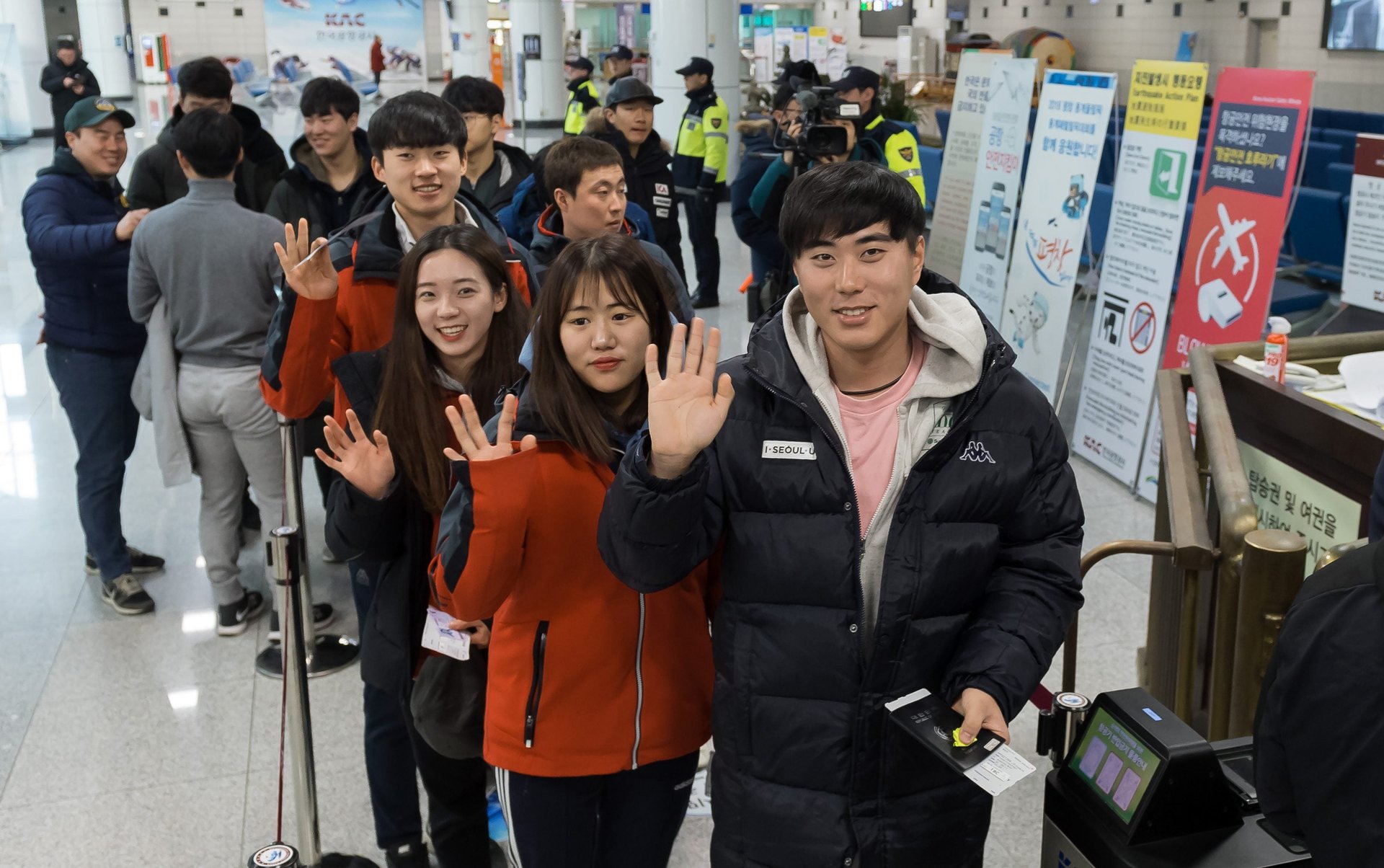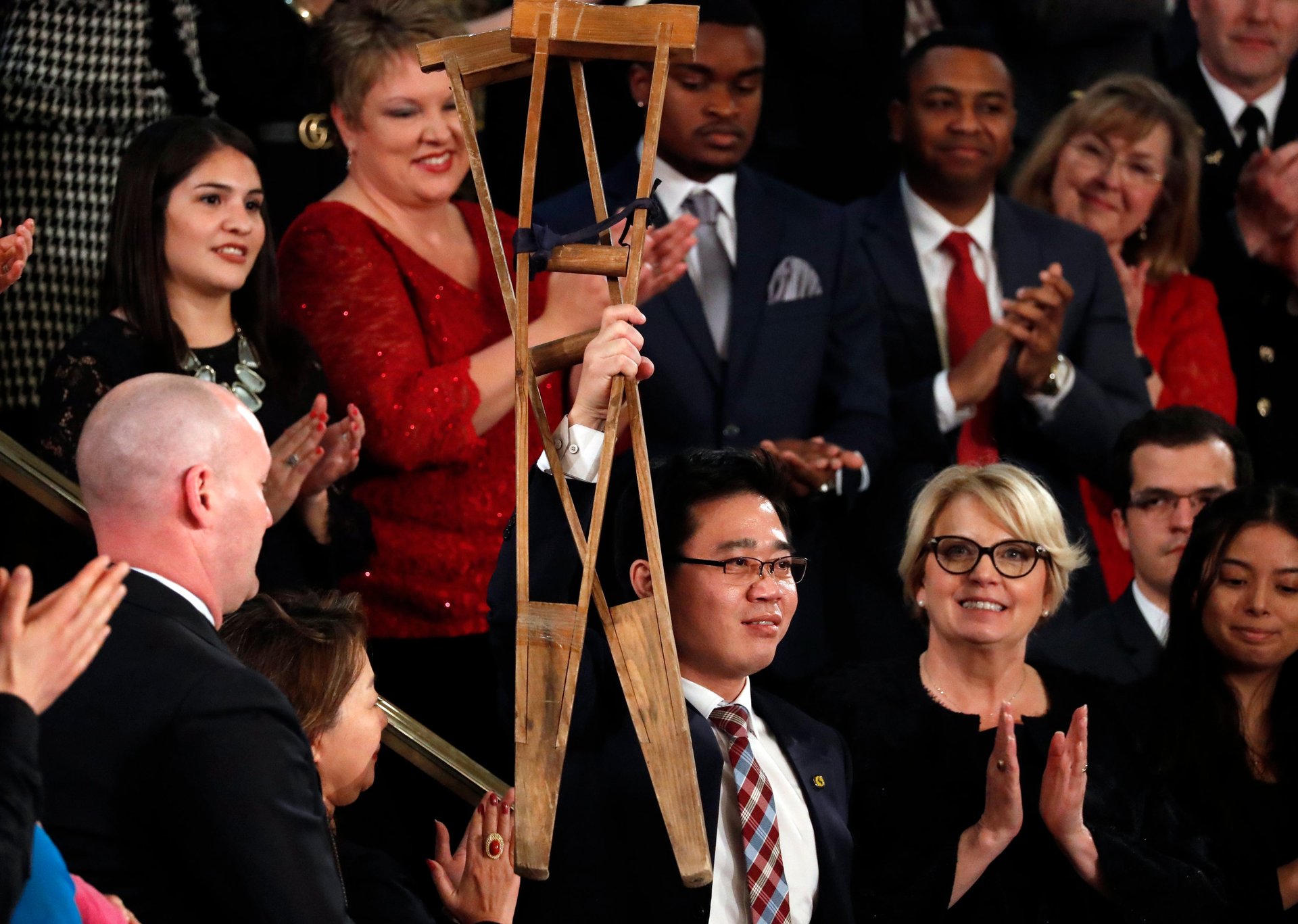As South Korean skiers head to North Korea, Trump reminds us war is still on the cards
Over the past few weeks, the Korean peninsula has been in a state of relative peace as North and South Korea engage in an Olympic detente. US president Donald Trump just reminded the world that it’s a state of affairs he really, really doesn’t like.


Over the past few weeks, the Korean peninsula has been in a state of relative peace as North and South Korea engage in an Olympic detente. US president Donald Trump just reminded the world that it’s a state of affairs he really, really doesn’t like.
In his State of the Union address yesterday (Jan. 30), Trump warned that as North Korea continues to threaten the world with its nuclear missiles, the US is “waging a campaign of maximum pressure to prevent that from happening.” He also cautioned that “complacency and concessions only invite aggression and provocation.”
Though Trump did not explicitly say what concessions he was referring to, his speech took place as South Korean athletes began training at a ski resort in North Korea as part of diplomatic efforts to thaw relations between the two countries ahead of next month’s Winter Olympics in Pyeongchang in the South. More strikingly, Trump’s speech took place shortly after news broke that Victor Cha, a Korea expert who worked under the George W. Bush administration, was no longer being considered for the role of US ambassador to South Korea.
In an opinion piece (paywall) for the Washington Post published shortly after the news was made public, Cha confirmed that he was no longer in the running for the job, and also laid out the reasons why he was against using a preemptive military option against North Korea. Media reports said that Cha and the White House disagreed over their approach to North Korea.
Trump also made an appeal to help North Koreans fight for freedom from Kim Jong-un’s “depraved” regime, and invited a North Korean defector, Ji Seong-ho, to Congress to rally support for that message. Ji, who crossed the border to China in 2006 and now lives in Seoul, was introduced by Trump and waved his crutches to rapturous applause—Ji lost a hand and a foot during the North Korean famine of the early 1990s and now has a new leg. Trump pointed out that Ji still keeps his crutches “as a reminder of how far [he has] come.”

Also present were the family members of Otto Warmbier, the Ohio teenager who died in a coma shortly after being released from detention in North Korea.
To be sure, many in South Korea have also been skeptical (paywall) of president Moon Jae-in’s push to engage Pyongyang, for example by forcing its female hockey players to play with athletes from the North, and having both countries march under a unified Korean flag. Pyongyang has also proved to be a fickle partner—this week it canceled a joint cultural performance with the South that was slated to be held in North Korea on Feb. 4, and accused South Korean media of fanning negative public sentiment toward its neighbor. It’s also planning to hold a military parade the day before the opening of the Winter Olympics to commemorate the founding of its army and showcase its arsenal. Some believe that Kim’s strategy is to drive a wedge between Seoul and Washington, rather than pursue reconciliation.
If any of the South Korean skiers heading to North Korea today (Jan. 31)—or anyone else on the Korean peninsula—had in the last few weeks temporarily put aside the thought of war breaking out, Trump just reminded them of that possibility.